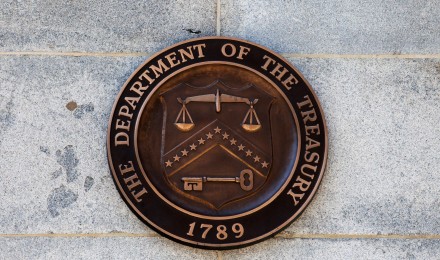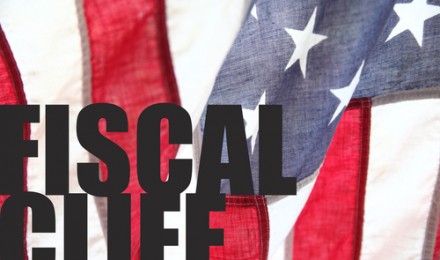A lot of talk has been taking place over the fiscal cliff that the nation is now facing. The President and Congress are working on a solution, but if they fail, a lot of people will experience many changes in their finances in the near future. In addition, a large number of government programs are also going to suffer. The fiscal cliff is now believed to have been caused by a reduction in taxes under the Bush Administration.
The amount of debt our nation has now is just about at an all-time high. Some are saying that this debt would be much lower if the Bush tax cuts were never made in the first place. According to the Washington Post, tax cuts were made in 2001, and then another one in 2003.
Being able to place an estimate on just how much the Bush tax cuts have cost the nation over the years is not an easy task. Some government agencies, however, have even said that it is impossible to determine an exact amount, due to various complications.
In that same Washington Post article, the Joint Committee on Taxation said that the first Bush tax cuts cost $1.35 trillion over a ten-year period. The second tax cut was believed to reduce taxes by $350 billion over a ten-year period.
An article at the Huffington Post by Harry Bradford says that it would prove to be very costly to let the Bush-era tax cuts continue. If they are kept the same as they are now, it is expected to cost the US just about $1 trillion in lost revenue. Harry says that his information comes from a new report from the Congressional Budget Office.
Part of the problem in knowing exactly how much the Bush tax cuts have cost is due to the fact that the government agencies initially predicting the cost – the Joint Committee on Taxation – have never recalculated the actual cost. One group that calculated it, however, was the Citizens for Tax Justice, reports the Tax Foundation. They claim, with interest being added, that as much as $2.5 trillion has been lost to the Bush tax cuts.
One individual who would like to see an end to all of the Bush tax cuts is Professor George Yin, who served as the chief of staff on the Joint Committee on Taxation between 2003 and 2005. He now serves as the Edwin S. Cohen Distinguished Professor of Law & Taxation and the Class of 1966 Research Professor at University of Virginia. He said: “Assuming that that level of revenue were to continue, there would be no money left for national defense, all discretionary non-defense spending, and all other entitlement programs, including federal employee and military retirement programs, food stamps, unemployment compensation and veterans’ benefits … clearly, the nation is on an unsustainable path.”
Exactly what will happen in Congress about the tax cuts remains to be seen. The Democrats and Republicans are divided over various aspects of extending some of the tax cuts, and letting some of them be dropped. Most likely, everyone will be affected in some way or another with increased taxes – which may help reduce the overall debt.
A lot of talk has been taking place over the fiscal cliff that the nation is now facing. The President and Congress are working on a solution, but if they fail, a lot of people will experience many changes in their finances in the near future. In addition, a large number of government programs are also going to suffer. The fiscal cliff is now believed to have been caused by a reduction in taxes under the Bush Administration.
The amount of debt our nation has now is just about at an all-time high. Some are saying that this debt would be much lower if the Bush tax cuts were never made in the first place. According to the Washington Post, tax cuts were made in 2001, and then another one in 2003.
Being able to place an estimate on just how much the Bush tax cuts have cost the nation over the years is not an easy task. Some government agencies, however, have even said that it is impossible to determine an exact amount, due to various complications.
In that same Washington Post article, the Joint Committee on Taxation said that the first Bush tax cuts cost $1.35 trillion over a ten-year period. The second tax cut was believed to reduce taxes by $350 billion over a ten-year period.
An article at the Huffington Post by Harry Bradford says that it would prove to be very costly to let the Bush-era tax cuts continue. If they are kept the same as they are now, it is expected to cost the US just about $1 trillion in lost revenue. Harry says that his information comes from a new report from the Congressional Budget Office.
Part of the problem in knowing exactly how much the Bush tax cuts have cost is due to the fact that the government agencies initially predicting the cost – the Joint Committee on Taxation – have never recalculated the actual cost. One group that calculated it, however, was the Citizens for Tax Justice, reports the Tax Foundation. They claim, with interest being added, that as much as $2.5 trillion has been lost to the Bush tax cuts.
One individual who would like to see an end to all of the Bush tax cuts is Professor George Yin, who served as the chief of staff on the Joint Committee on Taxation between 2003 and 2005. He now serves as the Edwin S. Cohen Distinguished Professor of Law & Taxation and the Class of 1966 Research Professor at University of Virginia. He said: “Assuming that that level of revenue were to continue, there would be no money left for national defense, all discretionary non-defense spending, and all other entitlement programs, including federal employee and military retirement programs, food stamps, unemployment compensation and veterans’ benefits … clearly, the nation is on an unsustainable path.”
Exactly what will happen in Congress about the tax cuts remains to be seen. The Democrats and Republicans are divided over various aspects of extending some of the tax cuts, and letting some of them be dropped. Most likely, everyone will be affected in some way or another with increased taxes – which may help reduce the overall debt.







